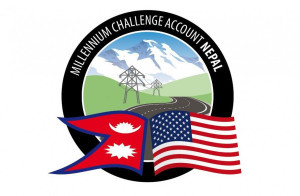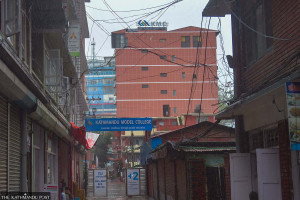National
26 Nepalis missing in Uttarakhand floods and landslides, embassy says
Most missing from Uttarkashi’s Dharali area; five unaccounted for in Pauri Garhwal.
Post Report
A total of 26 Nepalis have gone missing in last week’s floods and landslides in India’s Uttarakhand, according to the Nepali Embassy in New Delhi.
The embassy, in its latest update, said 21 of them went missing in Dharali of Uttarkashi district and five in Bankura of Pauri Garhwal.
Those missing from Dharali have been identified as Janak Bahadur Shahi, Rabi Singh, Karan Bahadur, Robin Singh, Gagan Bahadur, Gorakh Bahadur, Ram Bahadur Shahi, Hari Bahadur Khadka, Prabhati, Keshav, Nirmala Khadka, Laxman, Subas BK, Ramesh, and Priya.
Deepak Magar, Suraj Rana, Man Bahadur, Nim Bahadur, Rabi Singh, and Ram Bahadur are also among the missing in the area, the embassy statement said.
In Pauri Garhwal, the missing have been named as Narendra Khadka, Sandhya Khadka, Roman Khadka, Amrita Pariyar, and Bimal BK.
The Dharali tragedy unfolded last Tuesday when a local river, swollen by torrential rain, swept through the small market town, destroying houses and hotels. Local officials fear more than 50 people were buried, including hotel workers and pilgrims bound for the Hindu shrine of Gangotri. Dharali is the last settlement before Gangotri, with hotels catering to pilgrims and tourists.
Meanwhile, relatives who travelled to Uttarakhand’s Pauri Garhwal district to search for missing Nepalis in last Wednesday’s deadly landslide in Bankura village have returned home after failing to locate their whereabouts. After five days of combing the debris and the surrounding terrain, they abandoned hope of finding survivors.
Thousands of Nepalis—mainly from Lumbini, Karnali and Sudurpaschim provinces—work in Uttarakhand’s road projects, hotels and agriculture. Drawn by seasonal wages, many live in vulnerable hillside settlements prone to landslides and flash floods. While disasters like Pauri Garhwal’s landslide and Dharali’s flood are not uncommon, the absence of formal work permits or insurance leaves migrant families with little recourse when tragedy strikes.




 20.69°C Kathmandu
20.69°C Kathmandu
















